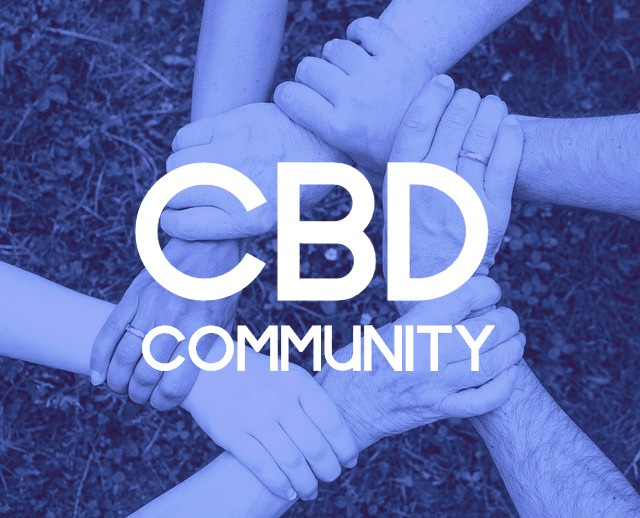Last updated on 23 September 2021
Hemppedia has compiled several articles on the various potential benefits and applications of CBD.
Nevertheless, a new user might have some mixed-up notions about the therapeutic properties of cannabis and its compounds. Therefore, this blog post aims to simplify and elaborate concepts to uncomplicated ideas for practical life applications.
Related post: Basics of CBD – What is CBD? – Everything you need to know!
What is CBD?
CBD is the acronym for cannabidiol. It is one of the naturally occurring phytocannabinoids (chemical constituents) in cannabis plants.
A 2012 study1 reports that there are around 400 chemical entities in the cannabis plant, and 60 of them are cannabinoid compounds.
Among them, the two main popular cannabinoids are THC (Tetrahydrocannabinol) and CBD (Cannabidiol). THC displays psychoactive effects, whereas CBD is non-psychoactive and doesn’t give you ‘a high’.
What is CBD oil?
CBD oil is the extract from the cannabis sativa plant that is highly lipophilic. Hence it often needs a ‘carrier’ to make it easy for the body to absorb and digest them. Carrier oils such as hemp seed oil, fractionated MCT oil (coconut oil), and black seed oil help improve CBD’s bioavailability.
How to use CBD oil?
The history of cannabis or hemp (a variety of the cannabis sativa species) dates back to thousands of years where every part of the plant was put to myriad uses in daily life.
A study2 asserts that several experimental, animal and laboratory studies have shown the broad range of therapeutic effects of CBD, it’s anti-inflammatory and immunomodulatory properties.
Therefore, CBD is a versatile compound used:
- Orally in the form of tinctures, oils, capsules
- Vaping/e-liquids
- Dabbing
- Infused with food and drinks
- Make edibles
- Supplements
- Topical applications – Creams, Balms, Salves
- Transdermal patches
- Nasal drops
- Ocular applications
What is full-spectrum CBD?
Cannabidiol extracts are available in three types. One of the types is full-spectrum CBD which contains all the naturally occurring compounds, cannabinoids, terpenes, and THC.
The entourage effect can be experienced from a full-spectrum CBD.
What is CBD isolate?
Isolates are the purest form of a single cannabinoid, either be THC or CBD, with 99.9% purity.
What is CBD Distillate?
CBD distillate is a viscous liquid containing cannabidiol (CBD) in its refined form. It is free from terpenes, impurities, and other cannabinoids hence has no smell, taste, or flavor.
What is the difference between hemp oil and CBD oil?
Hemp oil or cannabis sativa seed oil is made from hemp seeds. Although it does contain health benefits, it does not display any entourage effect.
A 2010 study3 points out that hemp seed provides significant health benefits, particularly cardiovascular health because of its rich omega 3 and omega 6 fatty acids content.
On the other hand, CBD oil is extracted from flowers, leaves, and stalks of the hemp plant. These plant parts contain high amounts of CBD.
Who can use CBD?
The FDA (US) regulates the consumption of CBD to adults above 18 years of age.
Moreover, the first FDA-approved drug, Epidiolex (CBD) oral solution, is used for the treatment of seizures associated with epilepsy in patients two years and above.
Additionally, several countries have modified their national controls and have accommodated CBD by removing it from controlled substances. Hence, CBD has become more accessible and is available for purchase online without the need for a prescription.
However, for patients suffering from comorbidities or specific health conditions, it is a good practice to consult a physician before beginning to use CBD.
Is CBD legal?
Yes, using CBD is legal depending on the THC levels and the country that you live.
Similarly, you must also be aware that traveling with CBD on a plane is subject to the rules and regulations of the destination country.
Recommended reading: In what countries is CBD legal? & Is CBD legal in all 50 states? (US)
What are the side effects of CBD oil?
Generally, CBD has a good safety profile, no adverse effects are reported associated with public health.
However, people consuming medications must take into account CBD and drug interaction as adverse effects.
On a case-to-case basis, one may experience dry mouth, mood changes, or drowsiness depending upon dosage, age, metabolism, lifestyle, and prevailing health condition.
References
- Atakan Z. Cannabis, a complex plant: different compounds and different effects on individuals. Ther Adv Psychopharmacol. 2012;2(6):241-254. doi:10.1177/2045125312457586 [↩]
- Larsen C, Shahinas J. Dosage, Efficacy and Safety of Cannabidiol Administration in Adults: A Systematic Review of Human Trials. J Clin Med Res. 2020;12(3):129-141. doi:10.14740/jocmr4090 [↩]
- Rodriguez-Leyva D, Pierce GN. The cardiac and hemostatic effects of dietary hempseed. Nutr Metab (Lond). 2010;7:32. Published 2010 Apr 21. doi:10.1186/1743-7075-7-32 [↩]
Author
With close to two decades of successful stint in the Media industry, I felt I was surely missing a piece in my life puzzle. I took a break and set out to seek the purpose of my life. I travelled, lived out of a suitcase, let things flow into life without resisting, and after five challenging years, I found my rhythm. I love to write about Cannabis and Health and try my best to simplify esoteric concepts into simple ideas for life.







